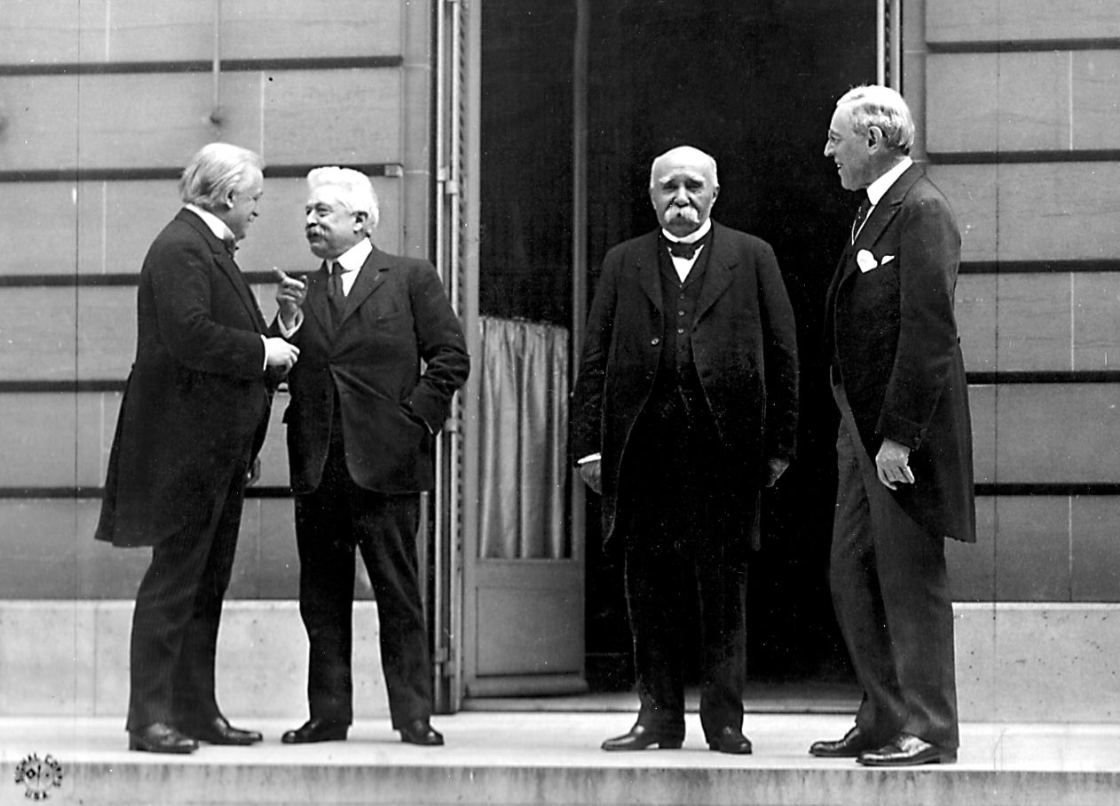The Paris Peace Conference officially convened the representatives of thirty-two allied and associated nations, representing about three-quarters of the world’s population, on January 28, 1919. In reality, the negotiations involved only the leaders of the Allied forces—the U.S., France, Britain, Italy, and Japan. At first, this core group was known as the Big Ten, which counted the leaders of the five nations and their top diplomats. Then the diplomats were cut out and the group was known as the Big Five. Eventually, Italy and Japan left the conference, leaving the treaty negotiations to the Big Four and finally the Big Three of the U.S. France, and England.
The peace conference concluded its most important business early. Wilson won support for the League of Nations. A commission for the League, comprised of nineteen delegates, worked at the Hôtel Crillon to frame the new entity. France and Britain agreed to Wilson’s League of Nations in exchange for their priorities—for France, the destruction of Germany’s power to wage war; for Britain, control of the seas, and with it, global influence over trade.
Both also wanted a treaty that embraced the idea of a balance of power—actually an imbalance of power, with the Allies in control of affairs in Europe and beyond.
The German Army, once 3.8 million men, was limited to 100,000 (about the size of Chile’s army); the general staff was dissolved; the production of munitions (armed cars, tanks, submarines, airplanes, and poison gas) was banned; and most arms factories were closed. A vast demilitarized zone was imposed, west of the Rhine and thirty miles into the rest of Germany.
Germany was also forced to accept total blame for the war—and pay for all the losses from the war, later calculated to be $33 billion.
The treaty signed at Versailles was just one of six treaties that would set the terms of the peace. The Treaties of Saint-German-en-Laye established the Republic of Austria. In the Treaty of Trianon, Hungary ceded Transylvania to Romania, Slovakia and Transcarpathian Rus to the newly formed Czechoslovakia, and other Hungarian lands to the future Yugoslavia. In the Treaty of Sevres, the Ottoman Empire ended its war with the Allies (soon the Turkish War of Independence began). In the Treaty of Lausanne, the new Republic of Turkey partitioned the old Ottoman Empire, overriding the Lausanne pact.

